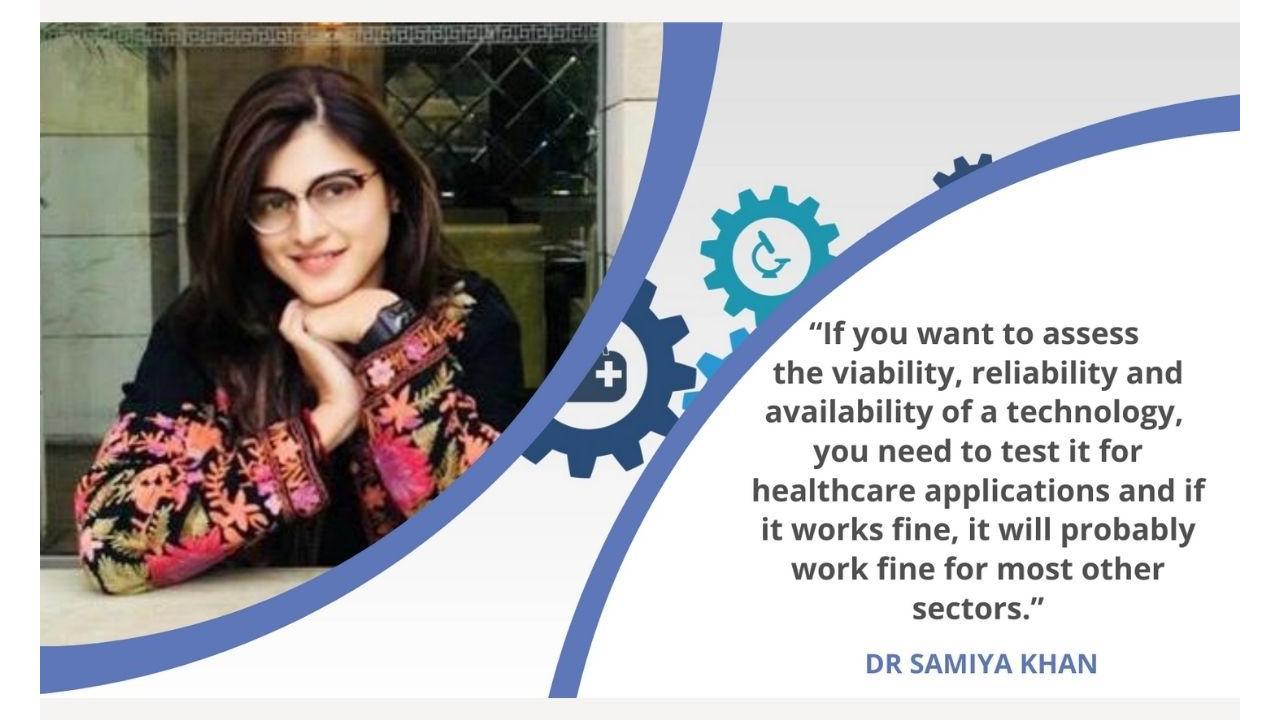.

Health Tech Samiya Khan Artifical Intelligence
Healthcare, as a sector, has for long held the reputation of being an application area that is a hard nut to crack. The critical nature of this domain leaves no scope for error, and technological systems are expected to be extremely robust, reliable and available. However, because of the stakes involved, it is also one of the most targeted application domain for technological innovation. There are several reasons for this, one of the most profound of which include high investments made by Government agencies and industry partners to evolve the sector.
ADVERTISEMENT
Recent trends in scientific innovation has brought together technologies such as the internet of Things (IoT), big data, cloud/edge computing, future networks and extended reality to create systems that can solve generic as well as specific real-world problems. Expectedly, healthcare lies at the centre of this revolution.
These technologies have been used in varied combinations to support a plethora of applications. The healthcare sector is a source of highly complex and multi-dimensional data. “From structured financial data to scanned hospital records and videos of medical procedures, this sector generates the full spectrum of data that is high in volume, available in varied formats and being generated at variable rates.” Said Dr Samiya Khan.
Dr Khan is a Research Fellow at the University of Wolverhampton, the United Kingdom, has been actively working in the field of transformative healthcare technologies. Most of her recent work in this domain include medical image computing and the development of architectures for the provisioning of highly mobile emergency services such as Smart Ambulances.
Dr Samiya Khan also added that, in addition to the standard ‘volume, variety, velocity’ characteristics, healthcare data faces several other challenges. These include security, data confidentiality and veracity, to name a few. One of the biggest constraints around the use of healthcare data is legal frameworks protecting the privacy and confidentiality of personal data. These make the development of data-driven decision support systems for healthcare challenging.
Research in this domain has progressed by leaps and bounds in the last decade. The advent and popularity of handheld and wearable devices has made it possible for systems to collect person-specific health data for generic and personalized recommendations. So, applications such as health/diet monitoring, health records management, and your smartwatch even notifying your healthcare provider and ambulance service that you have had unusual heart activity in the last 24 hours and may need help are a reality now.
Decision support systems collate data from multiple sources such as healthcare providers, insurance companies, emergency service providers, Government agencies and individuals to create solutions for personalized healthcare. Advanced technologies such as computer vision are being employed for evolving Computer Aided Diagnostic (CAD) systems to support radiologists in identifying tumours and estimating disease progression for treatment planning. Besides this, the extended reality is extensively being used for telehealth, medical education and robotics-enabled medical interventions.
Other popular sub-research domains in healthcare use bioinformatics in synergy with other technologies to support applications such as drug discovery and precision healthcare. Transformative healthcare technologies have impacted every aspect of healthcare and is expected to continue being a key assistive tool for healthcare workers to achieve higher precision and improve the operational efficiency of the system.
“If you want to assess the viability, reliability and availability of a technology, you need to test it for healthcare applications, and if it works fine, it will probably work fine for most other sectors.” – Dr Samiya Khan
 Subscribe today by clicking the link and stay updated with the latest news!" Click here!
Subscribe today by clicking the link and stay updated with the latest news!" Click here!







